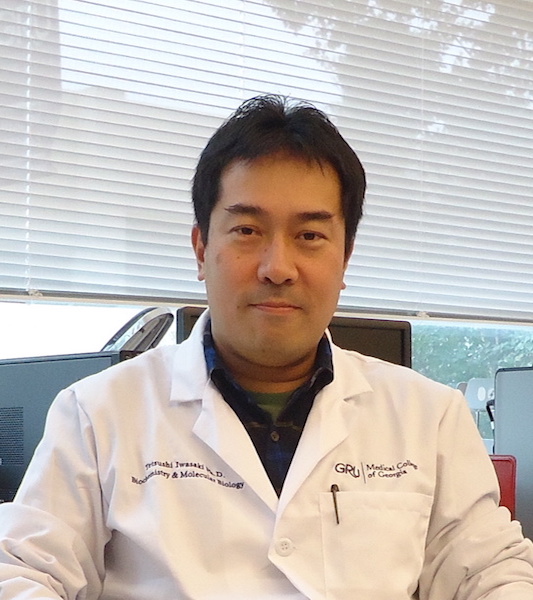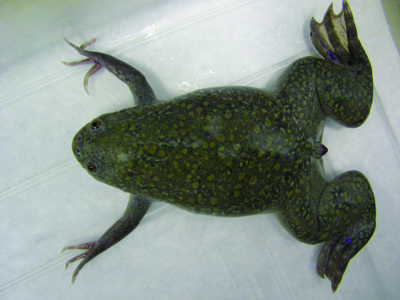Tetsushi Iwasaki, Ph.D.
Assistant Professor, Division of Biosignal Transduction, Laboratory of Gene Function
Research Interestss
We are interested in the mechanisms of inter- and intra-cellular signal transduction, in how cells receive and transmit the information.
Extracellular signal transmitters, such as hormones and growth factors, are received by the cells, and this information is transmitted to organelles. Finally, cells adapt to the extracellular environment through morphological changes, metabolic alterations, and gene expression. A number of molecules are involved in signal transduction, including protein kinases. They play an important role in signal transduction. Various diseases, for example cancer, are caused by collapse of the signal transduction system due to genetic mutations of protein kinases.
Our group is investigating the molecular mechanisms of cell growth, differentiation, oncogenesis, and cell death, using cultured mammalian cells, with the focus on molecular function of protein kinases. We are also studying the molecular mechanisms of oocyte maturation, egg fertilization, and early development using African clawed frog as a model system.
Although, "carcinogenesis" and "egg fertilization" seem to be little relevant at a glance, they have a lot in common from the aspect of signal transduction. We are now exploring the universality of signal transduction mechanisms.
Research Focus
1. Resistance to protein kinase inhibitors in malignat melanoma cells
2. Functional analysis of protein tyrosine kinases during Xenopus oocyte maturation
Recent Publications
- Watson P Folk, Alpana Kumari, Tetsushi Iwasaki, Erica K Cassimere, Slovénie Pyndiah, Elizabeth Martin, Kelly Homlar, Daitoku Sakamuro (2021)
New Synthetic Lethality Re-Sensitizing Platinum-Refractory Cancer Cells to Cisplatin In Vitro: The Rationale to Co-Use PARP and ATM Inhibitors.
International journal of molecular sciences , 22(24) - Taiki Nagano, Yuto Awai, Shione Kuwaba, Taiichi Osumi, Kentaro Mio, Tetsushi Iwasaki, Shinji Kamada (2021)
Riboflavin transporter SLC52A1, a target of p53, suppresses cellular senescence by activating mitochondrial complex II.
Molecular Biology of the Cell, 32(21) - Taiki Nagano, Tetsushi Iwasaki, Kengo Onishi, Yuto Awai, Anju Terachi, Shione Kuwaba, Shota Asano, Ryoko Katasho, Kiyoko Nagai, Akio Nakashima, Ushio Kikkawa, Shinji Kamada (2021)
LY6D-induced macropinocytosis as a survival mechanism of senescent cells.
Journal of Biological Chemistry 296, 100049
Contact
Office: Building C, room 432
Tel: +81-78-803-5957 (T. Iwasaki)
E-mail: tiwasaki@kobe-u.ac.jp (T. Iwasaki)
URL: http://www.biosig.kobe-u.ac.jp/en/research_division2_eng.html
 JAPANESE
JAPANESE 
